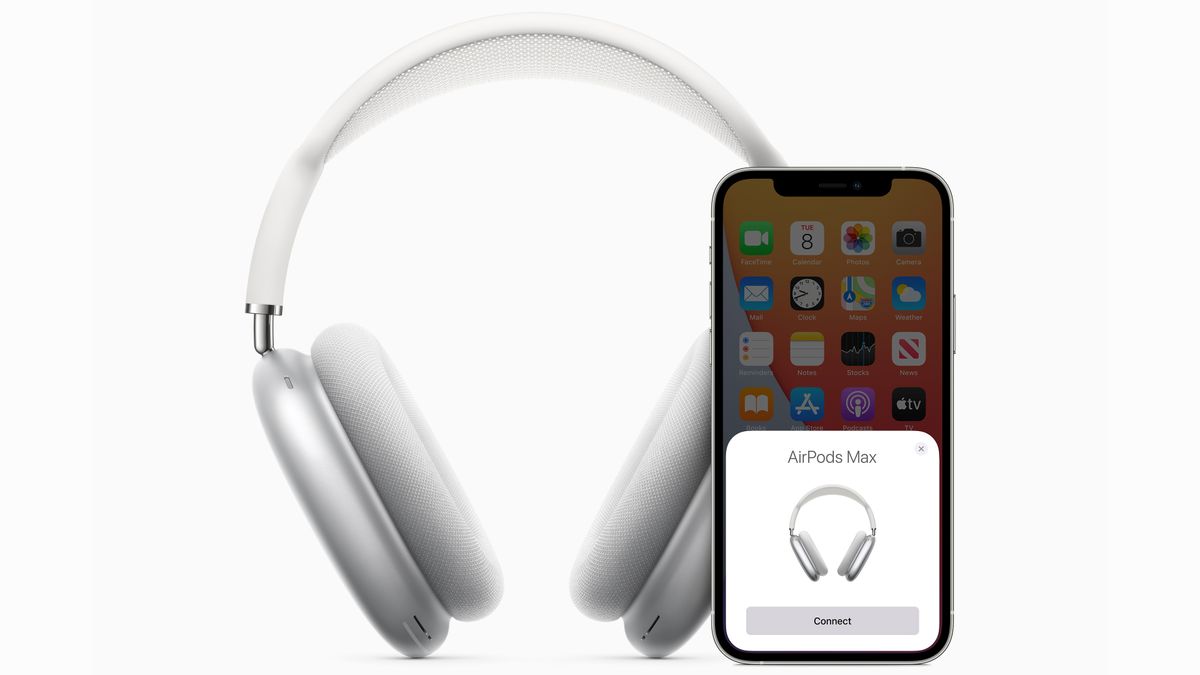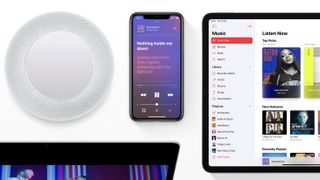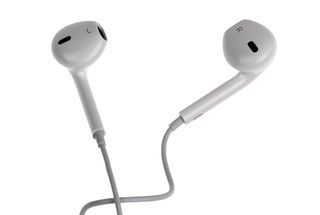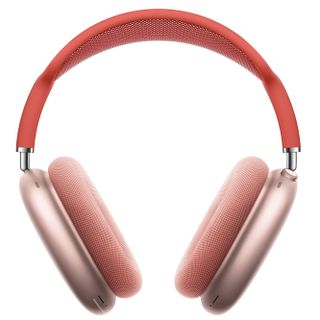There's a problem with Apple Music Lossless (and we're excited to see the solution)
Hi-res could be the making of its music streaming proposition – but what of Apple's premium products?

Apple recently did a noble thing. Despite the extra revenue that the tech giant could undoubtedly have harvested by offering its Apple Music streaming service catalogue in CD and hi-res audio quality, Tim Cook’s behemoth unveiled its momentous streaming service update in June at no extra cost to its subscribers.
These free improvements left rival streaming services, such as Spotify, which is yet to come forward with its Spotify HiFi tier, and Qobuz and Tidal, both of which offer hi-res streaming but at a significantly higher price, looking a little flat.
But here’s the rub: none of Apple Music’s competitors – Qobuz, Tidal, Deezer, Spotify, YouTube Music – also make the kit on which you can enjoy such streams. And it is here that Apple has, it seems, shot itself in the foot. Apple’s own headphones do not play ball with its new higher-resolution streams – not even its flagship AirPods Max (£549, $549).
Even though Apple sells several premium sets of Bluetooth headphones, you cannot stream music losslessly to them. The Bluetooth connection boasting the bandwidth to wholly support it does not yet exist. This is not unique to the Cupertino giant’s self-titled and Beats-branded headphone offering – no Bluetooth headphones offer this capability.
Apple Music Lossless uses Apple's own ALAC (Apple Lossless Audio Codec) to retain all the information in the original CD and hi-res master. No Bluetooth device, not even the AirPods Max, can decode this format, so you need wired headphones to enjoy it.

It’s important to remember that Apple's definition of 'Lossless' and 'Hi-Res Lossless' – the terms it has chosen to label its higher-quality streams – differs from the industry standard. Hi-res music is generally defined as any file with a higher sampling frequency and/or bit depth than that of CD quality, which is specified at 16-bit/44.1kHz. So, for example, a hi-res file can be 24-bit/44.1kHz, where bit-depth is higher than CD quality but the sampling rate is the same.
As specified on its support page, Apple defines 'Lossless' as having a maximum resolution of 24-bit/48kHz, and 'Hi-Res Lossless' as streams with sample rates greater than 48kHz, up to 24-bit/192kHz.
Get the What Hi-Fi? Newsletter
The latest hi-fi, home cinema and tech news, reviews, buying advice and deals, direct to your inbox.
Certain wireless headphones not made by Apple claim to support hi-res streaming – but even then you aren't getting a lossless audio experience. For example, Qualcomm’s popular aptX codec supports 16-bit/48kHz files, while aptX HD supports 24-bit/48kHz, and these are considered both streets ahead of 'standard' codecs such as SBC.
But the codec’s job is to determine how Bluetooth transmits from the source device to your headphones, and both aptX and aptX HD are lossy formats – so even if the audio you’re streaming boasts the same resolution as Apple Music Lossless, it isn't truly lossless. The key thing to remember is that Bluetooth connections are not lossless – not even the highest-quality one around, Sony's LDAC.
Apple Music has evolved to a point where it can offer Lossless and Hi-Res Lossless tiers via ALAC Bluetooth, but the chipsets within Apple's wireless headphones support only the AAC Bluetooth codec, so they can’t deliver them.
It’s an odd scenario and at best a mixed message from Apple – a company that prides itself on its direction and vision. After all, Apple pioneered the global craze for true wireless earbuds with its AirPods in 2016 (look at the swathes of AirPods alternatives available now). To some, it will feel like Apple has now rendered its own wireless headphones old hat.

- Hi-res music streaming services compared: which should you sign up for?
Perhaps in future headphones, Apple will switch to using a high-quality, wi-fi-based transmission system along the lines of AirPlay and move away from Bluetooth entirely. That would throw up its own problems, of course, but it'd be an interesting – and perhaps easier – way to wirelessly support true lossless audio in headphones than with a Bluetooth capability that is not yet possible.
But for now, to listen to Apple’s Hi-Res Lossless offering on your iPhone, you will need wired headphones, a standalone DAC and Apple’s camera adaptor. Apple does not make a DAC, so perhaps the Cupertino giant is missing a trick there. We used the Audioquest Dragonfly Cobalt DAC to test Apple Music’s Lossless and Hi-Res Lossless proposition. We liked what we heard, but the DAC costs £269 ($300) and, should you purchase one, it is money that won't be going into Apple’s coffers.
This throws up several questions. Do you want that clunky, wired, third-party set-up? Or do you prefer the convenience and freedom of Apple-only wireless listening? Maybe hooking cables around the buttons on your jacket and pulling your in-ears out as you commute impacts your listening pleasure far more than the extra dynamic range promised by higher-resolution streaming. And what of the smarter, cleaner look of the AirPods Max?
It’s okay to prefer that, just as it is to prioritise Apple’s proprietary spatial audio tech over hi-res file support – a feature that works beautifully on the Apple over-ears. Perhaps you believe, as many do, that Apple Music’s lower-quality AAC streams are barely distinguishable from its higher-quality ALAC offering, and that appreciation of hi-res digital music could be largely a placebo effect – we’re told it’s better, so we simply believe it is, rather than being able to determine any perceptible difference.

So, why would the huge Californian tech authority commit the noble and altruistic act of releasing a free hi-res upgrade to its streaming service only to invite criticism from disgruntled consumers who have paid the premium for its newest – and now seemingly outdated – wireless headphones?
There must be a master plan – it can only be the start of a bigger hi-res streaming journey. Just as HomePod and HomePod Mini will support Lossless imminently (following the HomePod 15 software update), the company must have an ace up its sleeve for its headphones roadmap.
We may not know what it is yet, but we are excited to find out.
MORE:
Read up on MP3, AAC, WAV, FLAC: all the audio file formats explained
Want the best? See best audiophile headphones 2021: ultimate high-end headphones
See our pick of the best music streaming services 2021: free streams to hi-res audio
Becky has been a full-time staff writer at What Hi-Fi? since March 2019. Prior to gaining her MA in Journalism in 2018, she freelanced as an arts critic alongside a 20-year career as a professional dancer and aerialist – any love of dance is of course tethered to a love of music. Becky has previously contributed to Stuff, FourFourTwo, This is Cabaret and The Stage. When not writing, she dances, spins in the air, drinks coffee, watches football or surfs in Cornwall with her other half – a football writer whose talent knows no bounds.
-
dvdlws 'There must be a master plan' - is it to use the vast wealth of the company to offer a service cheaply so as to put great financial strain on the competitors and presumably knock as many of them out of business as possible? While the service upgrade must be welcome to some (presuming they haven't splashed out on any of the Apple products that don't support it), rather naive to see their action as 'noble.'Reply
